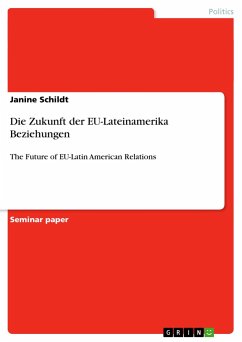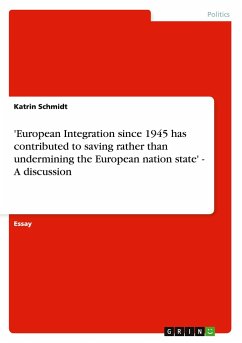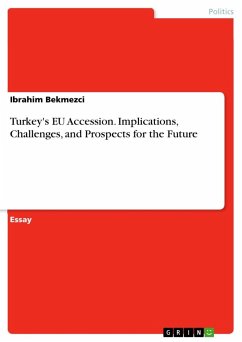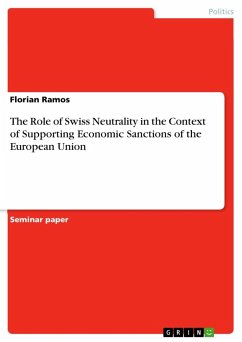Seminar paper from the year 2009 in the subject Politics - International Politics - Topic: European Union, grade: 1,7, Hertie School of Governance (Master of Public Policy), language: English, abstract: 1.Introduction"Latin America is absent from the European agenda, except when a summit between the two regions comes around and Europe cannot show up empty-handed." This statement from the Spanish Elcano Royal Institute can be underlined by trade figures. 2008 only one Latin American country (Brazil) was among the 20 most important EU trading partners. The EU's economic relations with countries like Vietnam, Kazakhstan or Angola are more substantial than with Venezuela, Colombia or Peru. While economic importance of Latin America and the Caribbean (LAC) for the EU is small and even declining , relations are far more vital for the other side. In 2007, the EU was the second largest trading partner for the region and provided most foreign direct investments and official development assistance. Nonetheless, with only 4% of EU development aid, the region receives least in global comparison. From a LAC viewpoint, the relations have fallen short of expectations considering the strong historic and cultural ties and the hope created by the launch of a new strategy in the mid-90s promising greater access to the European market. Since 1999 five EU-LAC summits have been held declaring an interregional approach and the vision of a Bi-regional Strategic Partnership but no significant progress has been achieved. In May 2010 another summit will take place, this time under Spanish Presidency, and skepticism exists whether great advancement can be reached. The paper will outline today's EU-LAC relations and give an outlook for the future. A changed global scenario requires a new approach towards LAC which needs to consider the shortcomings in internal integration as well as the differences in development within the region. A pure focus on bilateral agreements will notbe a sustainable solution. Moreover, trade centered negotiations with LAC countries do not acknowledge the growing political influence of the region. Thus, political dialogue and social issues should play a stronger role in interregional relations.








